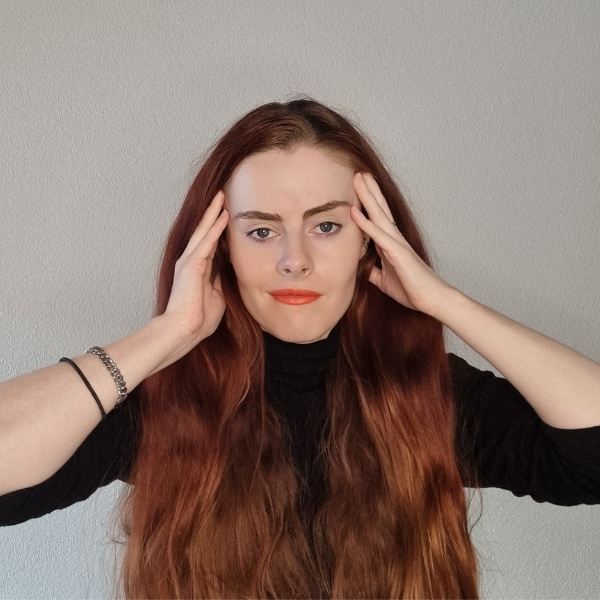“I would agree with you but
then we would both be wrong.”
TYPES OF STORY CONFLICT

Posted by
Enia.
Below you’ll find an overview of the different types of conflict in stories and also, a list of subtypes for each of them. The subtype list are the most common conflict types I’ve come across so far. I will add more when I come across them.
ARTICLE
What Types of Story Conflict are there?
- Person vs. Self
- Person vs. Person
- Person vs. Society
- Person vs. Unknown/Supernatural
- Person vs. Nature
- Person vs. Fate
Person vs. Self
- Identity Crisis: The protagonist grapples with questions about their true identity, struggling to reconcile conflicting aspects of their personality or make important life choices.
- Moral Dilemma: The protagonist faces a difficult decision that challenges their values and forces them to confront their own ethical boundaries.
- Self-Doubt: The protagonist battles with insecurities and a lack of confidence, hindering their ability to pursue their goals and fulfill their potential.
- Regret: The protagonist grapples with past mistakes or missed opportunities, seeking redemption or closure.
- Self-Discovery: The protagonist embarks on a journey of self-discovery, exploring their values, passions, and purpose in life.
- Addiction or Temptation: The protagonist battles against addiction or succumbs to temptations that threaten their well-being or relationships.
Person vs. Person
- Rivalry: The protagonist engages in fierce competition or rivalry with another character, whether it’s in sports, love, business, or any other area.
- Betrayal: The protagonist discovers that someone they trusted has deceived or betrayed them, leading to a conflict of loyalty and the need for revenge or forgiveness.
- Conflict of Interest: The protagonist finds themselves at odds with another character due to conflicting desires, goals, or ideologies, creating tension and opposition.
- Forbidden Love: The protagonist falls in love with someone they are not supposed to, leading to conflict and challenges in pursuing the relationship.
- Power Struggle: The protagonist becomes entangled in a struggle for power or control, facing off against an antagonist who seeks dominance or authority.
- Revenge: The protagonist seeks vengeance against a person who has wronged them, leading to a cycle of retaliation and escalating conflict.
Person vs. Society
- Social Oppression: The protagonist confronts systemic injustice, discrimination, or oppression, challenging societal norms and fighting for equality and change.
- Cultural Clash: The protagonist clashes with the expectations and traditions of their community or society, as they strive to forge their own path and pursue their individuality.
- Breaking the Mold: The protagonist challenges societal expectations and stereotypes, defying the prescribed roles assigned to them and seeking to redefine their place in society.
- Corruption: The protagonist uncovers deep-rooted corruption within the system or society and becomes determined to expose and fight against it.
- Nonconformity: The protagonist rebels against societal expectations and norms, forging their own path and challenging the status quo.
- Social Pressure: The protagonist feels trapped or overwhelmed by societal expectations and must navigate the pressure to conform while staying true to themselves.
Person vs. Unknown/Supernatural
- Unexplained Phenomena: The protagonist encounters strange and unexplained occurrences, leading them to investigate and unravel mysteries beyond their comprehension.
- Paranormal Encounter: The protagonist confronts supernatural entities or forces, forcing them to navigate a world beyond the natural realm and confront their fears.
- Confronting the Unknown: The protagonist grapples with fear and uncertainty as they venture into uncharted territories or face the inexplicable, testing their courage and resilience.
- Cursed Object: The protagonist comes into possession of a cursed object, leading to a series of supernatural events and a struggle to break free from its grip.
- Haunting or Ghostly Encounter: The protagonist confronts a malevolent spirit or ghostly presence that haunts them, threatening their sanity or well-being.
- Battle with Darkness: The protagonist faces an internal battle against their own inner demons, which may manifest as supernatural entities or psychological struggles.
Person vs. Nature
- Survival: The protagonist finds themselves in a hostile natural environment and must battle against the elements, hunger, or other life-threatening challenges to survive.
- Environmental Disaster: The protagonist faces the consequences of a natural disaster, such as a hurricane, earthquake, or wildfire, and must adapt or rebuild their lives in its aftermath.
- Animal Encounters: The protagonist encounters dangerous or wild animals, prompting a struggle for survival and a clash between human civilization and the untamed natural world.
- Man-Made Disaster: The protagonist deals with the consequences of a disaster caused by human actions, such as pollution, industrial accidents, or deforestation.
- Taming the Wild: The protagonist undertakes a journey to tame a wild or dangerous animal, forming a bond and overcoming obstacles in the process.
Person vs. Fate
- Predestined Path: The protagonist grapples with the belief that their future is predetermined, leading to a conflict between accepting their fate or defying it to carve their own destiny.
- Challenging Prophecy: The protagonist becomes aware of a prophecy or prediction that foretells their fate, and they must navigate the obstacles and choices that will determine whether the prophecy comes true or is defied.
- Navigating Destiny: The protagonist faces a series of seemingly fated events or encounters, forcing them to question whether they can alter their destiny or if they are destined to fulfill a particular purpose.
- Acceptance: The protagonist comes to terms with their inevitable fate, finding peace or purpose in embracing what is meant to be.
- Sacrifice: The protagonist must make a difficult choice that involves sacrificing their own desires or well-being for the greater good or to fulfill a higher purpose.
RATE THIS POST
5 / 5. 2
